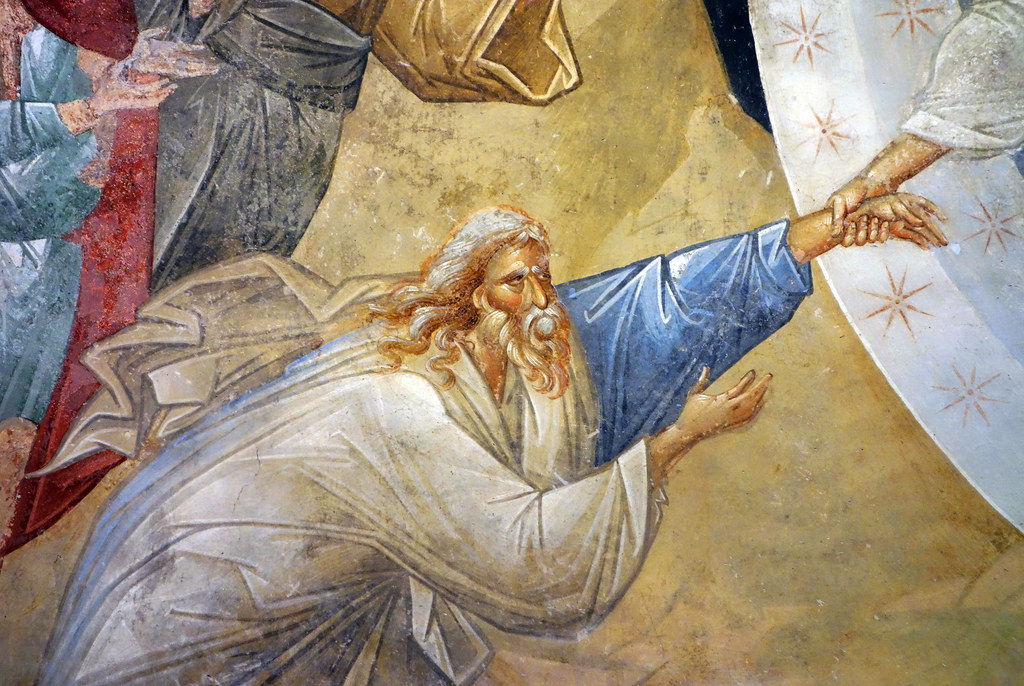
What will keep us from falling away from God over and over again? This question is often raised in response to Origen of Alexandria (c. 184-253), who, while teaching the doctrine of the final restoration of all things (apokatastasis pantôn), also believed that God does not save people against their will. This freedom of choice may seem to compromise the hope that eventually all things will be restored. If we are free to choose between good and evil, what guarantees that all will eventually choose the good?
Though this question, often raised by modern defenders of free will, is legitimate, Origen insists that the love of God will eventually succeed in converting all persons. Greater than free will is love, because love is greater than all things. Love, says Origen, will keep every creature from falling away from God. In other words, not even the freedom of choice will be able to sever the bonds of love in the end. We are not saved against our will, but through the power of love.
True freedom does not mean, then, the power of created beings to make an arbitrary choice between good or evil, but true freedom means union with God to such a degree that only the good remains. The love that unites us to God is grounded in God’s love for us. God’s love, then, is the guarantee that human freedom will eventually be subsumed to love.
This argument is made by Origen in his commentary to Paul’s Epistle to the Romans. Here Origen writes:
Now precisely what it is that would restrain the freedom of will in the future ages to keep it from falling again into sin, the Apostle teaches us with a brief statement, saying, “Love never falls away,” [1 Cor. 13:8]. For this is why love is said to be greater than faith and hope [1 Cor 13.13], because it will be the only thing through which it will no longer be possible to sin. For if the soul shall have ascended to this state of perfection, so that it loves God with all its heart and with all its mind and with all its strength, and loves its neighbor as itself [Cf. Mt 22.37–39], what room will there be for sin? After all, it is on this account as well that in the law [love] is said to be the first commandment, and in the Gospels love is commanded above everything else [Mt 22.38]. And when the supreme authority for feeding the sheep was given to Peter and the Church was founded upon him as upon the rock [Mt 16.18], the confession of no other virtue is demanded of him except of love [Cf. Jn 21.15–17.]. And John, when he says many things concerning love, even says this: “He who abides in love abides in God,” [1 Jn 4.16]. Rightly then love, which alone is greater than all, will keep every creature from falling away at that time when God will be all in all [Cf. 1 Cor 15.28.]. For the Apostle Paul had ascended to this degree of perfection, and standing in it he was confidently saying, “For who will separate us from the love of God which is in Christ Jesus? Will affliction, or distress, or famine, or nakedness, or peril, or sword?” and again, “But I am certain that neither life, nor death, nor things present, nor things to come, nor angels, nor powers, nor height, nor depth, nor any other creature, will be able to separate us from the love of God in Christ Jesus our Lord,” [Rom 8.35, 38, 39.]. From all of this it is plainly shown that if none of these things enumerated by the Apostle can separate us from the love of God, when someone shall have ascended to the peak of perfection, how much more impossible shall it be for the freedom of will to separate us from his love! For even though this is also a virtue and abides in nature, nevertheless the power of love is so great that it draws all things to itself [Cf. Jn 12.32.] and joins all persons to itself and conquers the virtues, especially since God has first given to us the grounds of love, “He who did not spare his only Son but handed him over for us all and with him has freely given all things to us,” [Rom 8.32.]. (Origen, Commentary on the Epistle to the Romans, V.10, p. 376)
